Free Resources for Tradespeople in the Construction Industry
At Construction Companion, we strive to provide valuable tools and information to support tradespeople and industry professionals. Our free resources are designed to help you manage your business more effectively and ensure compliance with industry standards.
Letter Before Action Template
This formal "Letter Before Action" template notifies debtors of outstanding debts and the intention to pursue legal action if not resolved promptly. It identifies both parties, summarises the debt, details prior reminders, and provides a clear payment deadline.
The letter also expresses a willingness to resolve the matter through mediation and highlights legal obligations and potential court sanctions for non-compliance, ensuring all steps are documented and legally justifiable.
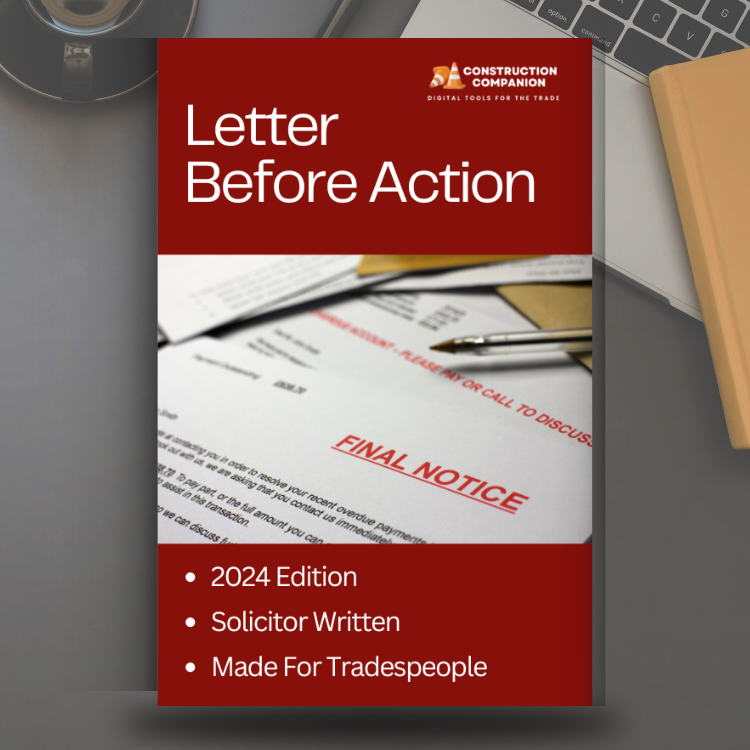
Construction Companion
Letter Before Action Template
Share
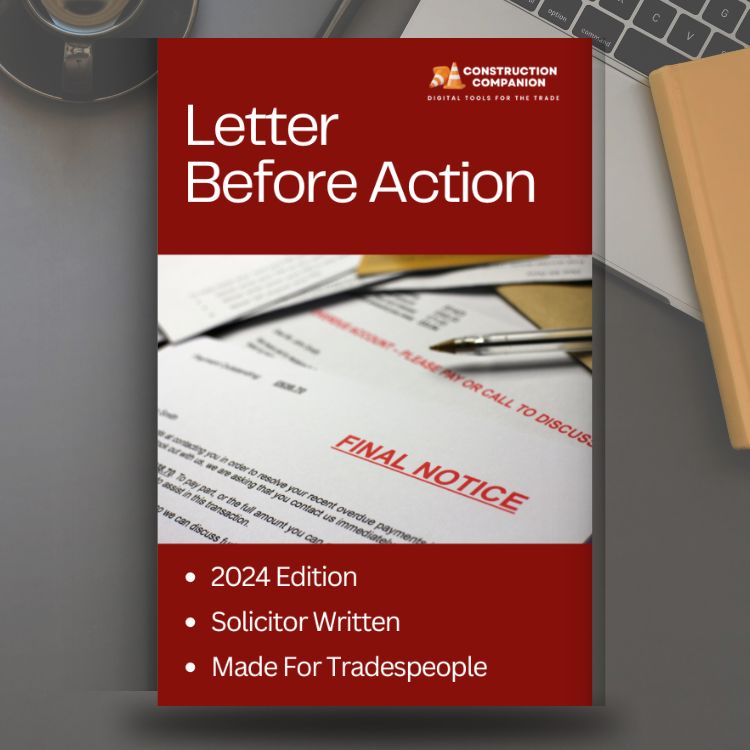
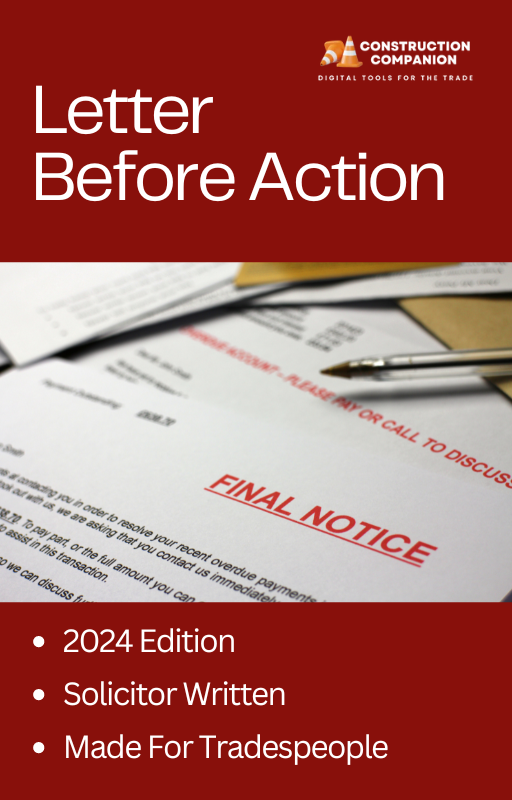
Defective Goods Notice Template
Designed to facilitate the return of substandard materials, such as materials of inferior quality, or to summon a product specialist to the site in instances of a faulty system or product. This agreement, aligned with the Sale of Goods Act 1979, ensures a high success rate in resolving such matters efficiently and in accordance with NHBC standards and codes of practice.
It is an essential tool for upholding the highest industry standards and safeguarding consumer rights.

Construction Companion
Defective Goods Notice Template
Share

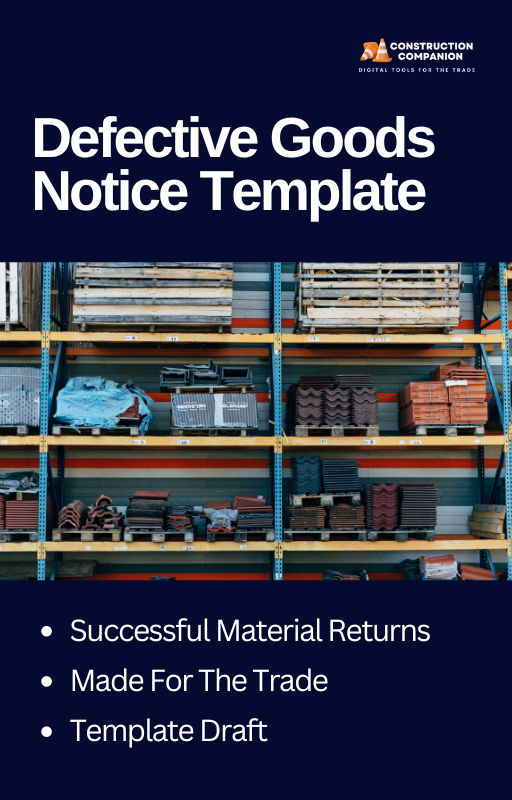
Resource Directory
Below you can find valuable resources specifically for tradespeople. These links include access to free method statements, health and safety documents, debt collection advice, and mental health support within the construction industry. Our goal is to support your business with essential tools and information.

Health And Safety
If you're looking for essential health and safety documents for your construction projects, we suggest exploring the following resources.
Find free templates for risk assessments and method statements and more.
Ensure your site meets all safety standards and regulatory requirements.
Unpaid Invoices
-

Managing unpaid invoices can be a challenging aspect of running a business. When a customer fails to pay, it's essential to have a structured approach to recover the debt while maintaining professionalism and compliance with legal standards. Here’s a comprehensive guide on how to collect debt from a non-paying customer, with useful resources and links to help you through the process.
-
1. Initial Steps: Communication and Documentation
Federation of Small Businesses (FSB)The first step in debt collection is to maintain open communication and keep thorough documentation. Start with friendly reminder letters and follow up with more formal communication if necessary.
Steps to Follow:
- Send Reminder Letters: Begin with a polite reminder letter detailing the amount owed and the due date.
- Follow Up: If the initial reminder does not work, send a second, more urgent reminder.
- Final Notice: As a last step before legal action, send a final notice indicating your intent to take further steps if payment is not received.
Resource: For template letters and more advice, visit the Federation of Small Businesses (FSB).
-
2. Legal Action: Filing a County Court Judgment (CCJ)
If communication fails, legal action may be necessary. Filing a County Court Judgment (CCJ) can be an effective way to enforce debt repayment.
Steps to File a CCJ:
- Prepare Your Case: Gather all relevant documentation, including contracts, invoices, and communication records.
- Submit a Claim: File your claim with the county court. You can do this online via the GOV.UK Money Claim Online service.
- Court Judgment: If the debtor does not respond, the court may issue a default judgment, ordering the debtor to pay the amount owed.
Resource: Detailed guidance on the process is available on the GOV.UK website.
-
3. Enforcement Options
Roythornes SolicitorsOnce a CCJ is obtained, if the debtor still does not pay, you may need to enforce the judgment through various methods.
Enforcement Methods:
- Bailiffs/High Court Enforcement Officers: For debts over £600, consider transferring the CCJ to the High Court for enforcement. Bailiffs can seize assets to cover the debt.
- Charging Orders: Secure the debt against the debtor's property.
- Third Party Debt Orders: Freeze and recover funds directly from the debtor's bank account.
- Attachment of Earnings Orders: Deduct payments directly from the debtor's wages.
Resource: Roythornes Solicitors provides in-depth information on these options. Learn more on their debt recovery page.
-
4. Alternative Dispute Resolution
Find a MediatorBefore resorting to legal action, consider alternative dispute resolution methods such as mediation. Mediation can be quicker and less costly than court proceedings.
Steps for Mediation:
- Find a Mediator: Use services like the Civil Mediation Council to find a qualified mediator.
- Agree on Terms: Both parties should agree to the mediation process and work towards a mutually acceptable solution.
- Document the Agreement: Ensure that any agreement reached is documented and signed by both parties.
Resource: The GOV.UK site offers guidance on using mediation services. Check their mediation page.
-
Conclusion
Collecting debt from a non-paying customer requires a balanced approach that starts with clear communication and escalates to legal action if necessary.
Utilising resources from reputable sites like GOV.UK, FSB, and professional legal advice can ensure you handle the process effectively and within the law.
Help and Support for Construction Workers' Mental Health
-

Running a construction business comes with significant stress, from managing projects to ensuring worker safety. Having a Construction Companion agreement in place can provide peace of mind by clearly outlining responsibilities and expectations. However, additional resources and support are essential to maintaining mental well-being. Here are some valuable resources for construction workers
-
Mates in Mind:
Mates in Mind.This leading UK charity focuses on raising awareness and addressing the stigma of poor mental health in the workplace, particularly in the construction industry. They offer clear information and support for employers on how to promote mental well-being among their teams. For more information, visit Mates in Mind.
-
Lighthouse Construction Industry Charity
Lighthouse Club.Lighthouse Construction Industry Charity: Known as the only charity that provides financial, emotional, and mental well-being support to the construction community, the Lighthouse Club offers a 24/7 Construction Industry Helpline. This helpline provides confidential support and advice for workers and their families. Learn more at the Lighthouse Club.
-
CITB (Construction Industry Training Board)
CITBCITB (Construction Industry Training Board): CITB supports mental health initiatives by funding training for mental health first aiders and supporting mental health projects across the industry. They have partnered with organizations like the Lighthouse Club and Samaritans to make mental health resources accessible to construction workers. Visit the CITB website for more details.
-
Importance of Mental Health in Toolbox Talks
Get HelpMental health is now a vital component of toolbox talks in the construction industry. These discussions help raise awareness, reduce stigma, and provide workers with the knowledge and resources they need to support their mental well-being and that of their colleagues.
By incorporating these resources and support systems into daily operations, the construction industry can help create a safer and more supportive environment for all its workers. For further support and to access these resources, please explore the links provided.
For immediate help, construction workers and their families can contact the Construction Industry Helpline.
Can't Find What You're Looking For?
Need help? Our friendly professionals are here to assist you. Send us a message, and we will be in touch shortly to provide the support you need.
